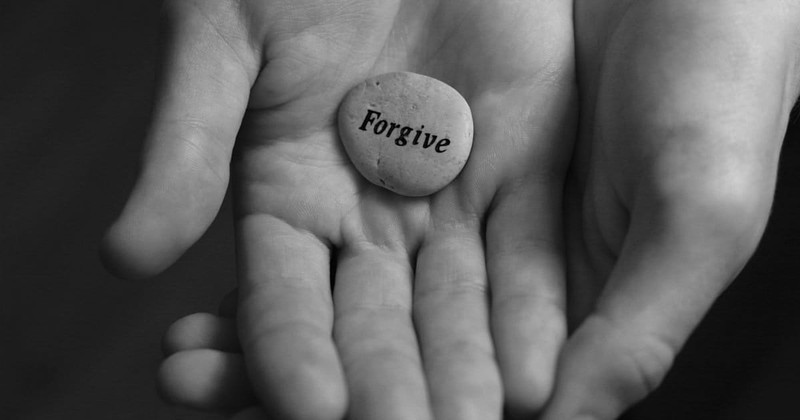
Hurt happens. It happens to all of us, often when we do not anticipate it. It happens in families, it happens in friendships, it happens with co-workers, and we even hurt ourselves. The most confusing kind of hurt, though, is the hurt that happens for seemingly no reason.
Maybe for you it's the customer service person who's supposed to be helping you out but keeps making everything more difficult with their attitude. This scenario rubs you the wrong way every time. You assume that kindness is a part of their job description without considering why they may be behaving rudely in the moment.
Or maybe you're dealing with an acquaintance who is constantly inconsiderate to your kind gestures. They disregard your feelings when you express them and say that you are "sensitive" without trying to hear you out. You do not understand their lack of effort to change, especially since you've vulnerably expressed your concerns. As we interact with people in relationships we expect them to be as invested as we are in the relationship without considering that they might not value the relationship in the same sense that we do.
We label people unkind by our own justifications. As humans, when we judge others harshly we simultaneously cover ourselves with a lot of grace. The moment we experience negativity, we assume that the other party must be the source of that negativity without any understanding to who they really are. By looking at our situations with our eyes and not God's heart (1 Sam 16:7) we miss the opportunity to see the value that God has designed. We miss God's sovereignty when we dismiss people because of our hurt.
Here are 10 ways to deal with those "unkind" people and interact with empathy and grace.

1. Try Not to Take it Personally
Understand that most of the time when we interact with others, especially strangers, they are not purposefully trying to elicit our anger with their behavior. No one is sitting behind the scenes strategizing ways to dull your mood. There are seven billion people in the world and their happiness levels are never in sync. We're all bound to bump heads with someone at some point.
Image Credit: Thinkstock.com

2. Think Positively
Philippians 4:4 reads "Rejoice in the Lord always. I will say it again: Rejoice!" A few verses later we are reminded to think on "whatever is true, whatever is pure, whatever is lovely, whatever is admirable." Nothing is 100% unpleasant and therefore some positive aspect can be found in any situation. That moment of unpleasantness should not take over your thought life.
Image Credit: Thinkstock.com

3. Self-Examination is Key: Not Self-Determination
I hinted at this before but we are not to be self-righteous in these situations and decide that we are the good ones and the other person is bad. I am not asking that you blame yourself for any hurt you've endured but that you focus on what you can control: your thoughts and your behaviors. You may not know why the other person behaves the way they do so don't take time out of your day to convince yourself that they are always a source of negativity.
Image Credit: Thinkstock.com

4. In the Moment, Respond with Grace
Matthew 5:39-48 starts with "do not resist an evil person. If anyone slaps you on the right cheek, turn to them the other cheek also." This step honestly takes practice to master as it is not natural to resist the urge to defend yourself. Humans have survived history by defending themselves but God saved humanity by resisting his justified anger with our sins. Since God lives in us through the Holy Spirit we have the power to follow his example.
Image Credit: Thinkstock.com

5. After that Moment, Pray for Yourself
A lot of things can go wrong in the heat of the moment, but this is an area you intentionally want to grow in since you will be dealing with difficult people for the rest of your life. Pray about how you can grow after the dust settles. If things were left unresolved, ask God how you can approach reconciliation with that person. If relationships were broken, ask God for restoration according to His will. As Proverbs 3:5-6 reminds us, Trust God in all things.
Image Credit: Thinkstock.com

6. Pray for the Unkind Person
And pray for them as if they were you. Which means the prayer shouldn't sound like "Lord, I lift up that extremely rude person who just cut me off, may you teach them some manners and bless them with some sense." I think people often forget that gentleness is a fruit of the spirit. As much as possible, lift them up before the Lord as his beloved, as someone else who is made in God's image.
Image Credit: Thinkstock.com

7. Deal Honestly with How You Feel
This step really depends on where you are in the relationship with the unkind person, but don't pretend like that bad experience didn't happen. Resentment builds when we keep sweeping hurts under the rug, all the while keeping score of wounds and holding it against the person. If it is something that continues to hurt you go to that person and try to be reconciled. If it isn’t something that needs reconciliation, move on. Acknowledge your pain, give it to God, and move forward in a positive direction.
Image Credit: Thinkstock.com

8. Find Opportunities to Interact with People Who aren't Like You
You have biases, and you get comfortable with those who are "easy" to love not realizing they are easy to love now because you have spent so much time with them. For your own growth, make yourself uncomfortable and grow your understanding of community. Jesus loved those whom society would cast off. Who are you casting off and how can you grow?
Image Credit: Thinkstock.com

9. Ask God for Forgiveness
No one handles hurt perfectly. We judge, we react quickly, we do not treat others as God would treat them and that alone is means to seek forgiveness from God. When we fail to see value in God's creation we are sinning against God. That person’s life does have a purpose from God even if you are blind to it right now, so yes when you are hurt you also may need to seek forgiveness.
Image Credit: Thinkstock.com

10. Forgive the Unkind Person
Forgiveness is practiced constantly. We are not the final judge, we are not the judge at all. God is. Submit the person and the situation into God's hands and move on without pain. That doesn't necessarily mean reconcilation, and that doesn't necessarily mean friendship with the unkind person. But it does mean letting go of the hurt they caused and giving it up to God to judge and deal with accordingly.
If we practice these steps with "unkind" people, we will grow with Godlike empathy. God pursues us with love; as much as possible, let's take steps to go in that same direction.
Nylse is a Christian wife and a mother of four who loves life and inspiring others. She likes to have fun but is very clear on who she is and Whose she is. A prolific thinker, she blogs to encourage others from a Christian perspective at www.lifenotesencouragement.com. She can be found online on Facebook, Twitter, and Pinterest.
Image Credit: Thinkstock.com
Originally published Tuesday, 23 January 2018.



